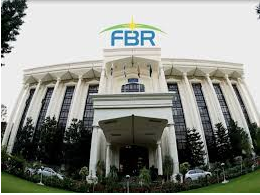INP-WealthPk
Abdul Ghani
The Federal Board of Revenue (FBR) is moving decisively toward expanding its e-invoicing system countrywide to increase the number of tax filers. Speaking to WealthPK, a senior official of the FBR said the initiative aims to streamline sales tax compliance, strengthen transparency, and reduce the operational burden for businesses.
“E-invoicing is essential for increasing the number of tax filers. Repeated extensions in filing deadlines aim to give businesses the time they need to integrate smoothly, so that we can maximize participation and grow the filer base,” the official said. Initially, mandated under SRO 709(I)/2025, the framework requires sales tax-registered businesses to issue and report invoices electronically through the FBR’s integration platform.
The system was to be introduced for corporate taxpayers on June 1, 2025, and for non-corporate taxpayers on July 1, 2025. However, to facilitate the industry, the deadlines were extended to July 1 for corporates and August 1 for non-corporates, with further phased deadlines for different business sizes set under S.R.O. 1413(I)/2025.
Under the new phased approach, public companies and large taxpayers with turnover above Rs1 billion must comply by September 1, 2025; mid-sized businesses (turnover Rs100 million–Rs1 billion) by October 1; small businesses (below Rs100 million) by November 1; and the remaining entities by December 1, 2025. The e-invoicing platform validates each invoice in real-time, generating a unique Invoice Reference Number (IRN) and QR code to ensure authenticity.
The data is transmitted in structured JSON format via API, with integration support available free of cost through the FBR’s licensed integrator PRAL. Businesses can connect directly or through the approved middleware and ERP plugins.

Early onboarding trends indicate growing traction. Industry insiders estimate that thousands of registered taxpayers have already connected to the system during the pilot phase, transmitting billions of rupees in invoice value monthly.
According to the FBR’s internal monitoring, participating businesses have experienced fewer audit queries and faster refund processing due to the availability of real-time, verifiable data. It is worth mentioning that electronic invoicing is mandatory for all businesses. A registered individual is required to install this system through a licensed integrator.
Credit: INP-WealthPk









